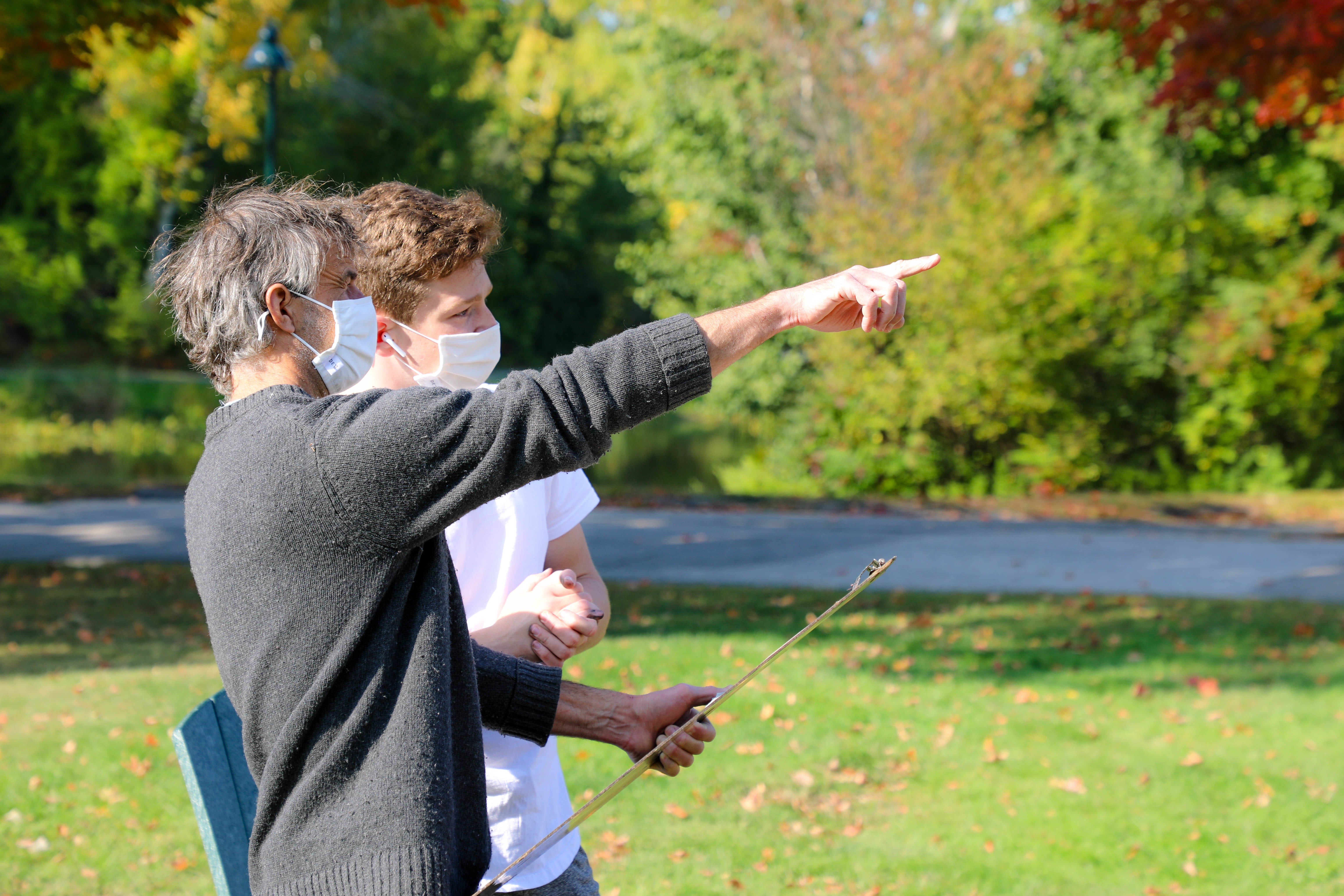Every time language is spoken or written, every time a work of art is created and displayed, it sits within some kind of larger context. My interest this week is in words, how they hang in the air or on the page and how the air is charged around them and depending on the context and who is saying them, the meaning changes. No word, written or spoken, gets to simply float in a vacuum, in a weightless state and the absence of pull. Every word carries with it a definition, or several definitions, and it carries with it a certain connotation that might be relatively neutral and light in weight, but might also be significantly heavy within a context and setting, which leads me to the question, who gets to say what when?

When I walked out of the woods yesterday evening I happened upon a group of students huddled around the outdoor teaching space near the wood mizer. It was dark, they didn’t see me coming, and a burst of profanity greeted me and the dog as we crossed the gridiron. I commented on it, but wasn’t too upset. The speaker did not see me. They were chatting as friends. The setting helped me understand the breach even when I am not a fan of casual profanity, and the profanity, while carrying the weight that profanity does, wasn’t horrifically negative to me. I’ve heard worse. Now had I stayed and chatted for longer and the profanity continued, well, that would have been different. The setting and context would have shifted. Who gets to say what when would have been different.

Should anyone have watched the presidential debate earlier in the week, one might have sensibly surmised that anyone gets to say anything at any time in front of an audience of 73 million people if the subject is politics. That wasn’t the way it was supposed to be, but words flew this way and that, a melee of sound with plenty of fury and little to no decorum yet signifying plenty. Mostly about the state of democracy. If one had happened to stroll by such a brouhaha on the streets, one might have been inclined to give the authorities a call with the exhortation that, “Somebody better get over double quick before someone gets hurt. These two guys are really whacking away at each other.” With words. In the case of the debate, it appeared as if the context for what was happening, the seriousness of the moment and the import of the election had been lost. It was a street brawl of words that I wish hadn’t been used in that setting. And in the moment and the aftermath, that has been mighty troublesome.

In the landscape of teenagers, part of our responsibility is to teach students to choose their words carefully and to be mindful of both context and setting. Some words are particularly weighted. That’s why I nudged the students at Leonard Field yesterday evening, hopefully helping them be aware when the setting shifts, the words change. It’s still profanity, but the words’ weight suddenly shifts. It’s not always a quick lesson, and it’s a lesson further complicated by social media, that ultimate mosh pit for the inappropriate. Sometimes it seems that as quickly as we stitch together the seams of social norms and community, the social media mosh pit rips them apart. The who gets to say what when question is replaced by I get to say whatever whenever. And that’s never the case.

Most students know or intuit the boundaries of acceptable, they understand setting, context, and medium, but those that don’t we have to address. Sometimes it is a nudge and sometimes more forceful disciplinary action is necessary in extreme situations. That’s happened here in the past and more recently. It will likely happen again. We take each situation and look at it individually, using the prism of our Green Book as a guide and the care for our greater community of students and adults as our understood obligation. Who gets to say what when in a landscape that continually sends conflicting messages is never quite as simple as one would like, and yet it can be blatantly obvious at the same time.

Mike Henriques P'11, P'15
Proctor Academy Head of School








